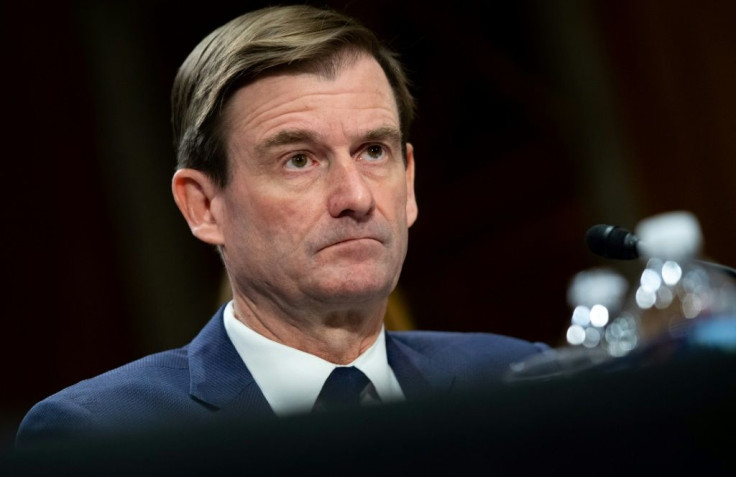Top US Career Diplomat Rejects Ukraine Meddling Theory

The top US career diplomat on Tuesday unambiguously rejected a theory promoted by President Donald Trump that Ukraine, not Russia, interfered in the 2016 election.
Asked at a hearing by Democratic Senator Robert Menendez if he had evidence of Ukrainian meddling in the election, David Hale, the under secretary of state for political affairs, replied, "I do not."
"No," he replied when Menendez asked him if Russian meddling in the election was a "hoax," a word often used by Trump.
"Yes, the intelligence community assessed that Russian President Vladimir Putin ordered an influence campaign in 2016 aimed at our presidential election," Hale told the Senate Foreign Relations Committee.
Hale said he had no reason to doubt testimony by former White House expert Fiona Hill, who told the impeachment inquiry into Trump that the Ukrainian meddling theory was propaganda spread by Russia.
Trump, in a July call to Ukrainian President Volodymyr Zelensky, sought an investigation into a theory mentioned by his lawyer Rudy Giuliani that a hacked computer server of the rival Democratic Party was in the hands of a Ukrainian company.
Witnesses in the impeachment inquiry have testified that Giuliani ran a parallel diplomatic track with Ukraine in coordination with Trump, bypassing regular channels.
Asked by another senator if Giuliani remained involved in Ukraine diplomacy, Hale replied, "Not that I'm aware of."
Trump also sought Zelensky's support in probing Democratic presidential candidate Joe Biden, the trigger for the ongoing impeachment push.
Secretary of State Mike Pompeo, while careful not to say he believed the Ukrainian conspiracy, said he felt "a duty" to investigate any suggestions of election interference.
Ukraine, which relies on US military aid to battle Russian-backed separatists, has dismissed any suggestion of US election interference.
US intelligence concluded that Russia manipulated social media among other actions in hopes of supporting Trump in 2016, although a probe by former FBI chief Robert Mueller found no evidence that the Trump campaign was colluding with Moscow.
© Copyright AFP 2024. All rights reserved.




















